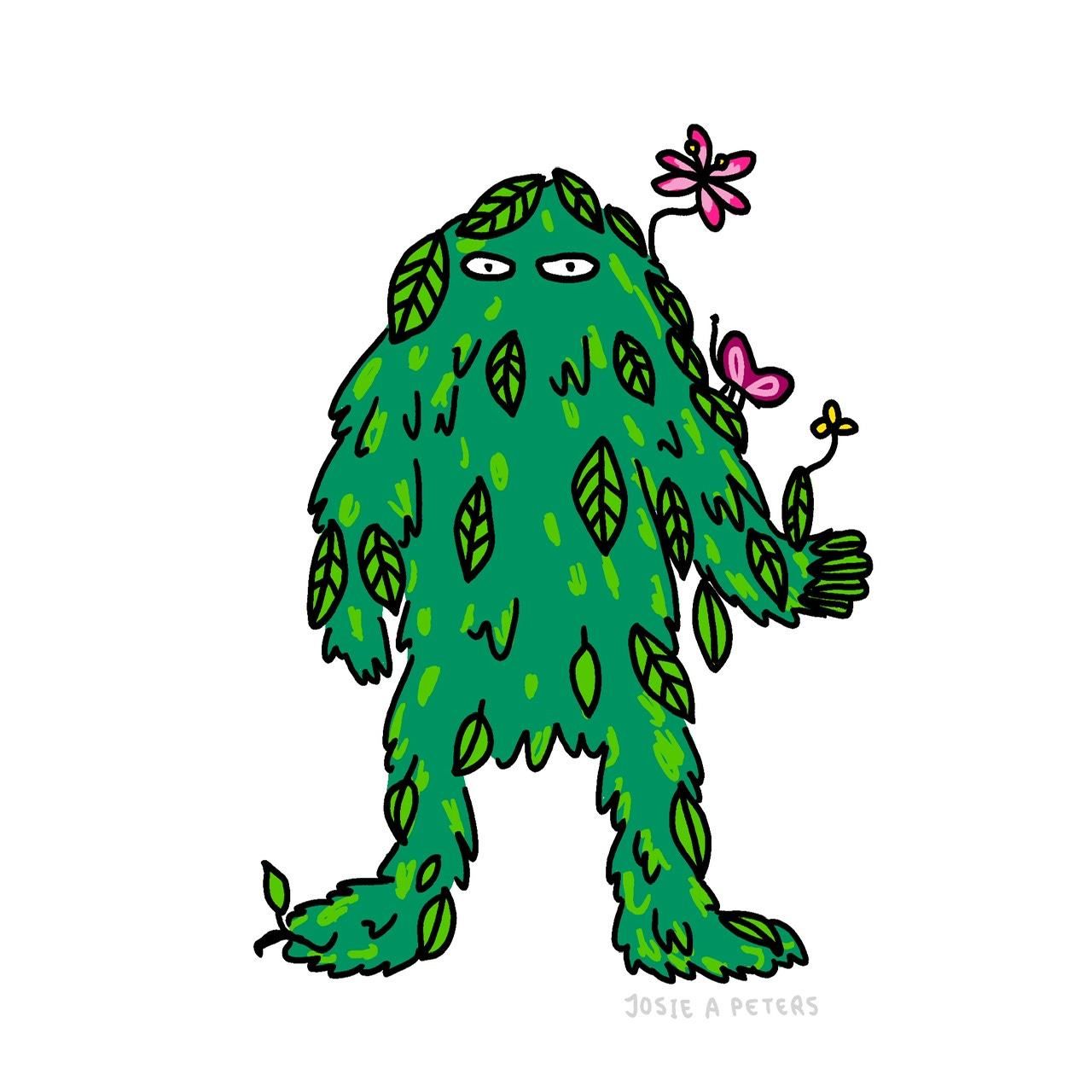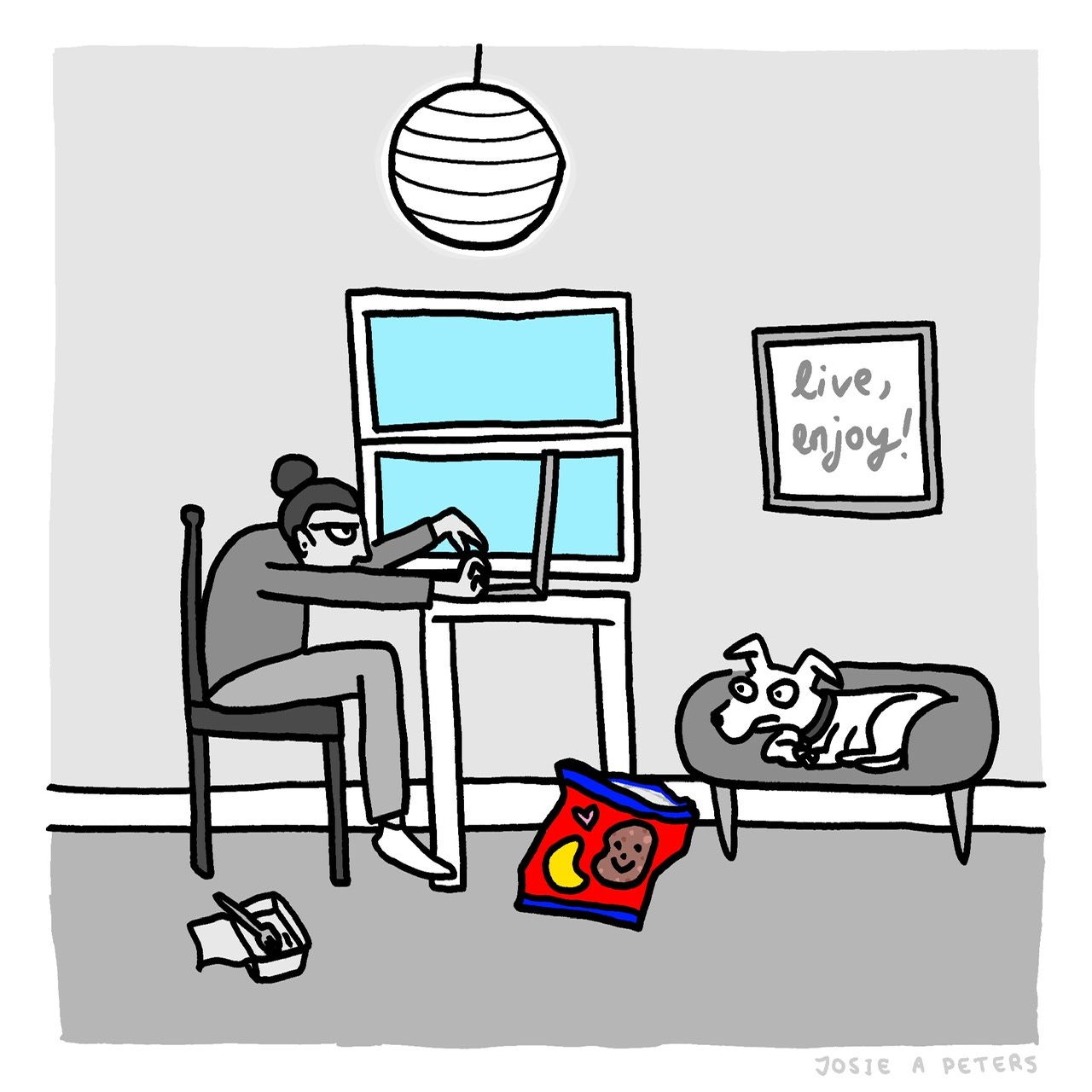Maybe you are the same, I’m someone who loves to learn…but also, loves to optimise. I remember getting praise when I lived with nuns1, about how efficiently I stacked the crockery cart at the end of dinner. Maybe it says a lot about me, that this was a huge compliment.
But I’ve realised, as I was drafting a comic for this very substack, that I’ve been unknowingly trying to optimise pretty much everything. I read a lot of books and listen to podcasts that are all scientifically heavily researched, but many of them can be viewed as ways to improve your life. It’s a science-y self-improvement.
The thing is, when you take a step back. It’s a bit bizarre that we even need telling , or evidence for, the things that we could do to improve our lives. Sleeping, napping, dancing, singing, community, movement, time with friends, rest, more vegetables and home cooked food, laughing, new experiences - you could easily follow all of these with “well DUH”. Ultra-processed food might give you cancer, but fruit is good for you! Not sleeping is really bad! wow!!!
One that particularly struck me was the amount of evidence I was gathering for why GOING OUTSIDE is good for you. Did you know that trees secrete an oil into the surrounding air, which calms you down AND benefits your immune system? And that the colour green and (house or otherwise) plants benefit your well-being? Oh and also that your eye health can be improved by going outside? 1. By looking at things which are further away, and 2. That the AMOUNT of light our eyes receives can be 100x more than what we get being inside, which acts as a protector for eyes from becoming myopic (short sightedness, which is on a staggering rise). As well as the nutritional benefits of vitamin D from sunlight, fresh air that’s not air in your house or office, getting enough natural light for your circadian rhythm so that you sleep well, psychologically you feel more accomplished just leaving the house, seeing the world still going makes your problems feel smaller…
To clarify, I’m certainly not against researching these things. It’s interesting finding out how and why these things benefit us. The mad thing is that we seem to need - not convincing, because I think we would do these things more naturally - but permission to do these things. Permission to enjoy life, and not be seen as lazy2.
As individuals we can do as much as we can to summon the effort to lead these more fulfilling lives, but I’d say a wider societal way of living is the contributor. Anecdotally, it’s only since I’ve had some time off recently that I’ve found the energy to cook again, to have more time outside, do a bit of yoga, to nap when I need to, and even play with the cat. It’s also worth thinking about the ways in which correlation/causation etc. are actually playing out. This is a topic for it’s own post or comic, but while we berate ourselves for being on our phones too much, and there’s evidence that loneliness and smartphone use are correlated, is it rather the loneliness3 and boredom that makes us reach for the phones, than the phones causing it? I’ve been equally unhealthily focussed on my Beyond Sudoku puzzle book for hours at a time that hurt my eyes, made my neck stiff and left me feeling that same unpleasant fuzzy brain feeling after a few hours on tiktok.
I suppose it only becomes obvious when you phrase the alternative to the good advice: stay inside and stay still, talk to as few people as possible, work all the time, eat ‘food’ made in factories, stay up late, decorate your house in grey and beige, compare yourself to others, look at a screen all day. It sounds like a prison sentence! In fact, in 2016, a study surveying 12,000 parents from 10 countries found that 50% of children spend less than 1 hour a day outside, and 1/3 of children spend less than 30 minutes!!! - whereas prisoners are guaranteed 2 hours.
Frankly, if you’re reading this and you’re still inside, I’m not sure how many more reasons I could give you. But then again, so am I. In my favourite cafe, with a lot of other lonely, well caffeinated strangers all staring at big, bright screens a few inches from their faces, being ‘productive’. *sigh*
~*~ EXTRA BONUS ~*~
Briefly, here are some of the non-fiction books that I’ve read this year4 :
The Dance Cure - Dr Peter Lovatt (aka Dr Dance)
Friends - Prof Robin Dunbar (currently still reading this one)
Visual Thinking - Temple Grandin (also currently reading)
and if you’re looking for excellent fiction and haven’t yet read the modern classic and winner of the Waterstones debut fiction prize In Memoriam by Alice Winn, it is always the right time.
more on that later, maybe it’s something to save for my paid-subscriber exclusives
I highly recommend Laziness Does Not Exist by Devon Price. (Stick with it past the first third, I found the remaining 2/3 much more personally useful and interesting)
Another topic I’m passionate about is the reduction of the little daily human interactions we’re losing and how important they are, and contributing even more to loneliness. Such as supermarket cashiers being replaced with self service tills, cafes and fast food outlets using giant screens for ordering (that frankly are fiddly and take longer than speaking to a person), ticket office employees in rail and bus stations disappearing and us being told to just use the website and apps. But, for another post!!!
I don’t receive any financial benefit to sharing these links, they’re just personal recommendations







I'm with you on the 'Duh!'
I like the juxtaposition you wrote: that described my teenage daughter yesterday. It was a beautiful sunny day and we have a lovely garden.
One point: pretty much everything you mention as good for us is free.
The big businesses/ social media companies can't make money from us if we switch off our phones, go for a walk, have a nap and say 'hello' to a few people.
Unfortunately my income is below the poverty level and I will not be able to pay for the privilege--I'm thankful that I came across your article and experienced what you had to say